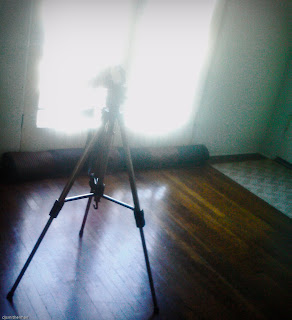Rudolf on my mind

Steiner is still on my mind. More like, my mind is on the spiritual worlds, and how to engage them.
Steiner's program of training for someone who wants to be able to perceive what is otherwise imperceptible is a combination of meditation and contemplation.* The objective is to find and develop the faculty of thinking that doesn't have anything to do with the perceptible aspects of reality (what we usually regard as 'all there is'). So he suggests, for the purposes of meditation, various phrases to contemplate. For instance, "wisdom lives in the light." The essence of these phrases is that they consist of concepts that make little or no reference to the physical world. "In the beginning was the Word" would be a good one. Or make up your own.
Along with the non-physical concepts to contemplate, the contemplation itself has a distinct feature in Steiner's spiritual science. Specifically, when one thinks on "in the beginning was the word", you pull your thinking as far away from the sensory aspects of the concepts as possible. You have to feel your way out into the apparent nothingness beyond those sensory aspects. Emmet Fox's discussion of the law of relaxation may be helpful here. Fox taught that mental effort is self-defeating. If you force your thinking, you're actually reinforcing the existing train-tracks of thought. It's only when you relax that your thinking can be set free. Set free from its attachment to the physical, is what Steiner would say.
What the hell does that mean? Steiner does say that our regular thinking is inextricably bound up with our voice. This other thinking that contemplates "in the beginning was the word" has no voice element to it. You can't be oh so subtly voicing this while you're contemplating.
Still with me?
* The problem with the words "meditation" and "contemplation" is that there are no standard definitions for those concepts.


Comments